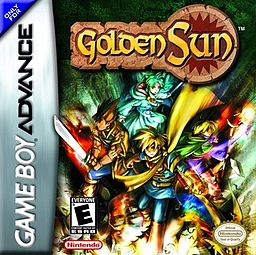The role-playing game is a well-traveled genre by now. Since its rise to fame courtesy of Final Fantasy and Dragon Quest, dedicated players have come across countless titles, all which vary in quality. Some of these games become franchises that are destined to stay strong for what feels like an eternity. And others, despite being great, never really catch fire, only manage to fade into the shadows. The latter types of games tend to develop a cult following that both reflects upon the good times…as well as hopes for some sort of revival. Most times, fans lament for a quality title lost, should the opportunity never arise.
The Gameboy Advance was truly a renaissance device for all of handheld gaming. It wasn’t quite the Golden Age that the Nintendo DS / PSP (collectively) would usher in a little later, but there was no shortage of fun to be had, especially in the realm of RPGs. Square threw a handful of Final Fantasy games from the SNES era onto the system, as well as offered original games like Final Fantasy Tactics Advance and Kingdom Hearts: Chain of Memories. The Gameboy Advance helped to ignite the niche that Fire Emblem has taken in the west, too.
But none of these titles resonated more deeply with me as a gamer than Golden Sun (2001) & Golden Sun: The Lost Age (2003). Published by Nintendo and Camelot, these games collectively blended everything I loved about the RPGs of the past—from effective use of the “silent protagonist”, to a story that emphasizes places, people, and events even more than its actual characters.
I’ll offer a quick summary of both games, since the crux of what I have to say will come later. Golden Sun tells the story of Isaac, whose goal is to stop a mysterious group from lighting the beacons of four mystical lighthouses that would unleash the power of Alchemy upon the world. He is joined by three friends who share the gift of Psynergy, the land’s unique take on magic that aids players in battle and helps to solve the puzzles of the various lighthouses.
At the end of Golden Sun, you’re left with a “To be Continued” screen as the plot is turned on its head. For the second game, you end up in control of Felix, one of the people Isaac was in pursuit of for the entire first game. Although Felix was quite chatty in the first Golden Sun game, when the player gains control of him, he does not speak. And Isaac, who was dead silent for the first game, develops a voice and a strong personality as soon as you come across him during the second game.
Battle is reminiscent of the early SNES era of RPGs—random, turn-based, simple to control, filled with magic and summon spells. But the game offers a unique twist in the form of Djinn, some 72 cute little creatures spread across both games that allow each member of your party to obtain a unique set of Psynergy skills, or enhance the ones they already have. There’s a lot of versatility that made me feel refreshed as a longtime RPG fan.
Continued on Page Two







